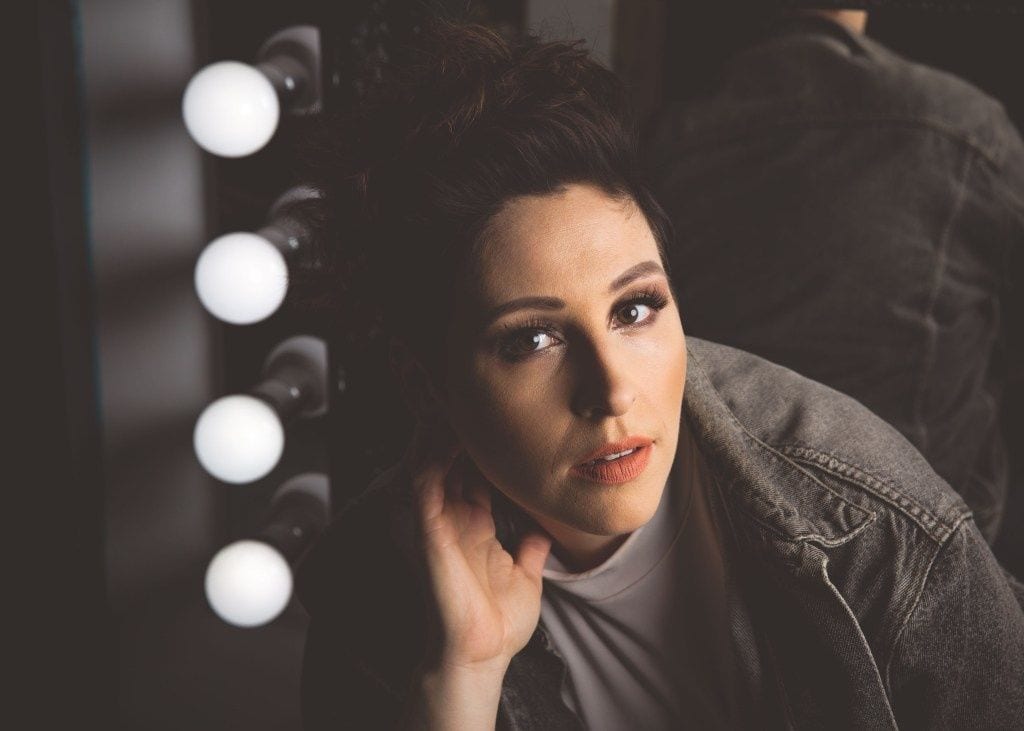“Mojave” is the single from Nashville singer-songwriter Sarah Peacock‘s acclaimed LP, Burn the Witch. Throughout the tune, Peacock tempers the deeply emotional content with a soaring vocal performance that allows the listener to feel the narrator’s emotional journey. It further establishes Peacock as an exhilarating voice in the singer-songwriter sphere, one whose lyrical and musical content is consistently comforting and nourishing.
Reflecting on the tune’s origins, she says, “I love the desert and using desert imagery. We think of it as this dried up, dead place. But the desert is amazing because there’s this undercover ecosystem there that’s thriving beneath that veneer. There’s a lot of comparison between that and the human heart and soul. When we go through some of the dry seasons in our life, when we do the most growing, is often when we’re in pain. It’s a reminder of how alive you really are.”
She adds, “It’s about somebody who hurt me a long time ago. I never mention it in the song, but the funny thing is that that relationship taught me the most. The aftermath of it was important to my personal development, even my songwriting.”
Burn the Witch touches on a variety of topics and was inspired in part by a 2016 bus fire, which saw her fanbase rallying around her in a moment of darkness and ultimately helping to fund her latest LP.
Peacock spoke with PopMatters from her home in Nashville.
Tell me about the writing and recording of Burn the Witch.
I look at my career in two different phases: Before the bus fire and after the bus fire. After the bus fire, I saw how my fans were coming together to support me, and it made me realize that people were listening and that music does make a difference. I became hyper-aware of what my music meant to my fans. I take that really seriously. I want to use my platform to plant positive seeds of change in areas that are close to my heart: Social justice, community groups.
Before the fire, I hadn’t been brave enough to journey into that full-on authenticity. I was really brave and wrote some things that were a little uncomfortable, and some things that I knew would probably make my family uncomfortable. But the songs started coming together, and the closer I got to be my most authentic self, the more tangible that message became.
When the ideas that made you uncomfortable started to emerge did you say, “I’m absolutely going to move forward into this” or did you have a moment of trepidation?
I just ran with it. For many, many years, I sacrificed my authenticity for other peoples’ comfortability. Then I was just done. I needed to be who I am. There’s no reason to be ashamed of who you are. Over the years, I tried to create different versions of myself that I thought might be more likeable, more playable on radio or might sell better. That cost something. I just wasn’t willing to pay the price anymore.
There is material on this record that references my direct family history. My parents are still listening to my music; some of my grandparents are still alive. They’re saying, “Where does she get these ideas from?”
[Laughs.]
But you have to move forward. I’ve lived undercover for so long that I couldn’t do it anymore.
Did you have support from friends who said, “You’re doing the right thing here”?
I did. My younger sister has been one of my biggest cheerleaders. I have an incredible group of friends and a partner who’s very encouraging.
Were there things you wanted to differently on this record in terms of performance or recording?
I wanted to have more strings on this record. We built the production around making room for that. That was something I’ve never done before. Orchestral arrangements and string quartet arrangements are so deeply moving.
Your vocal performances are so wonderful. Did you start singing at an early age or did you coax yourself into it over time?
I used to sing a lot in my room as a kid. I never sang for anyone publicly until I was part of some youth program at church. My parents said, “Oh, wow. You can sing.” I joined the chorus at school, got involved in all of that. Auditioned for all the honors choruses. I always knew I wanted to pursue. I went to school at Belmont in Nashville. There’s some natural ability but some of the styling and phrasing, all of that, I have to attribute to my education. I was forced to study classical music as well. I pay a little tribute to that on this record.

